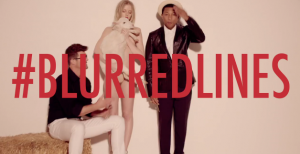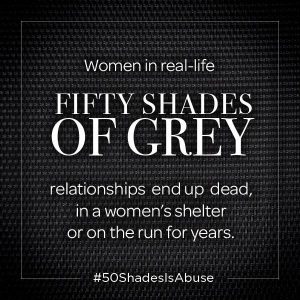
By Gabriella Walrath
A majority of popular songs in the twenty-first century are centered around sex. Sex is intriguing, it’s something humans are naturally curious about, and can even be fun (cue the audience laughing). But what makes contemporary culture’s treatment of sex distinct is its obsession and denial of sexual assault, abuse, and rape. And not an obsession of how wrong it actually is, but how right and natural people believe it should be (What is Rape Culture 1). You may have heard beliefs such as women should be raped if they’re not willing to have sexual relations; the rape of a man is not a legitimate because he’s supposed to be the “stronger gender”; newspapers who report about a rape using the word “sex” instead of the word “rape” to describe it, which trivializes the idea of what happened. These beliefs and actions are all examples of rape culture, and how pervasive it is in contemporary culture. But how does it spread on such a massive scale? When today’s popular music, movies, and TV commercials promote this type of behavior, this lineage of rape culture becomes apparent. Rape culture in the twenty-first century is exacerbated and significantly perpetuated by contemporary media, such as popular music, TV commercials, and movies.

In contemporary media, song lyrics are often one potential medium in which rape culture prevails. Robin Thicke’s hit song “Blurred Lines” exemplifies the fact that pop culture is blurring the lines on consent. One line in the song reads “That man is not your mate, and that’s why I’m going to take you.” Thicke’s lyrics give the green light to the male character in the song to take the female character by force without even asking her for her consent. This is not a passionate consensual affair, but a forceful rape. The woman is with a man whom the male protagonist views as inferior and the protagonist decides that he will make the decisions for the woman in question, by “taking” her. These lyrics can give subliminal messages to listeners that make it acceptable to rape someone. The culmination of the whole song solidifies this fact, since the chorus is the male protagonist singing in the girl’s ear “I know you want it” when she hasn’t even said that she wants to engage in sexual relations. Its reminiscent of creepy street harassment encounters that 85% of women will say they’ve experienced before age 17.

Simultaneously, rape culture has been in TV commercials, even in the so-called “progressive” 21st century. TV commercials are often using rape as a hook to buy their product, and at the same time turning sexual assault, harassment, and rape into a something that’s “cool” or “fun.” In April of 2015, the beer company Budweiser caused an uproar with their UpForWhatever campaign. The campaign’s slogan itself sells its beer with the tagline “The perfect beer for removing ‘no’ from your vocabulary tonight”. This outrageous slogan seems to suggest that living without rules or limits makes life more adventurous and fun. Budweiser apologized, saying that the campaign has “inspired millions of consumers ” to interact with the Budweiser brand in a “positive and lighthearted way”. After taking down the message, Budweiser later stated that they “would never condone disrespectful or irresponsible behavior”, when that is exactly what they were doing. If the idea of consent in a sexual context is to be able to decide full-heartedly what someone is comfortable with sexually, then by removing the idea of “no” from “your vocabulary” leads to one having limited options and therefore limited decisions that a person may not agree with at all.

Furthermore, rape/sexual assault in contemporary media is not only considered fun, cool, and acceptable, but sexy as well. This might explain why there is such an unhealthy obsession with it in twenty-first century culture. Box-office hit film Fifty Shades of Grey, based on the best-selling novel, is a story about a young college student named Anastasia Steele who interviews wealthy and mysterious businessman Christian Grey for her college newspaper. They end up having a tumultuous, unhealthy, emotionally and sexually abusive BDSM relationship that borders on creepy with how Grey stalks Anastasia numerous times. At one point Christian gives Ana a BDSM contract for her to look over and agree to. She is mortified by some of these things, and doesn’t want to sign, and texts him “Nice to know you” to basically say that she was done with him and the whole situation. Christian takes none too kindly to this, and shows up in her room later and proceeds to rape her when she gave signs that she wasn’t enthusiastic about the contract. During this rape, she begins to protest, and he tells her “If you make a noise, Anastasia, I will gag you.” Furthering this, Anastasia does not even sign the contract throughout the entire movie, because she feels uncomfortable by some of these sexual acts. In a typical BDSM relationship, if this happens, then the relationship ends, because the submissive must give full consent in order for anything to happen. Therefore, Ana and Christian’s relationship is filled with sexual, emotional, and mental abuse. She is repeatedly whipped at the end of the movie and begins to cry after it is over. But on the other hand, while she is mortified by the whole experience, the viewer sees Christian (after he whips her) breathing hard like he’s just had a fresh kill. It’s a much more positive experience for him than for her, highlighting one important question: how did this movie portray this relationship? Looking at the trailer, one can say that it was positive, and not surprisingly, sexy. There are many signs pointing to this; one is that the movie came out on Valentine’s day. Right off the bat its seen as a romantic movie. Secondly, the way the trailer was shot casts a very positive light on the couple. A montage of Christian and Anastasia happily flying in a plane, and the cries of desire from the two of them during the hints of the sex scenes (Fifty Shades of Grey Official Trailer 1). Fifty Shades of Grey glorifies an abusive billionaire and dictates that its sexy when a guy stalks you and manipulates you into signing a sexual contract as long as he is attractive and rich.
Rape culture surrounds us in many mediums, especially in pop culture. But to take an even bigger leap on the subject of how rape culture is staying alive in today’s world, we, as people need to ask not how we can prevent rape (which we already know) but why are we not taking more steps to erase it from our culture? How is it that our lawmakers, like Richard Murdouck, can suggest that pregnancies resulting from rape are “something God intended”, and that people accused of rape are shamed less than their own victims? We as a people need to look at our own culture, and not only see how rape culture is pervasive, but see how we can eradicate it.

